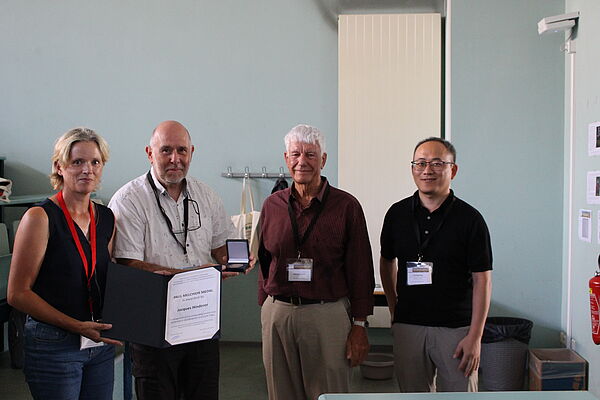The Paul Melchior's medal awards some outstanding scientists who have had an extraordinary experience and influence in the Earth Tidal Community. The medal is awarded every 4 years at the International Symposium on Geodynamics and Earth Tides (G-ETS), which was held for the 20th time in Strasbourg in August 2024 (https://g-ets2024.sciencesconf.org/). The medal is named after Professor Paul Melchior, the 1st winner of this award in 1997 and a scientist of international renown for his work on terrestrial tides. At the same time as Paul Melchior's work, Professor Robert Lecolazet in Strasbourg acquired the first continuous recordings of temporal variations in gravity over several months. Analyses of these time series revealed for the first time the resonance of the Earth's fluid core that affects diurnal tides. Following in the footsteps of the gravimetric measurements at Strasbourg, Jacques continued these observations and furthered his studies of the Earth's global dynamics. First of all, he extended Love's theory (1911) on the Earth's response to various forcings, producing landmark papers on the ‘Love numbers’ that characterise the Earth's global dynamics. After an initial decade of theoretical research, Jacques turned his attention to observational aspects, actively contributing to the development of the global network of superconducting gravimeters which are now the core of the international IGETS (http://igets.u-strasbg.fr/), a service of the International Association of Geodesy (https://iag-aig.org/). With numerous field missions under his belt, he then turned his attention to hydro-gravimetry studies. With his leadership in so-called ‘hybrid’ gravimetry, which combines simultaneous measurements made with several gravimeters, he eventually became involved in more applied studies with the gravimetric monitoring of geothermal reservoirs.
Jacques Hinderer reçoit la médaille "Paul Melchior" pour ses travaux exceptionnels en dynamique globale de la Terre et gravimétrie
À la une

